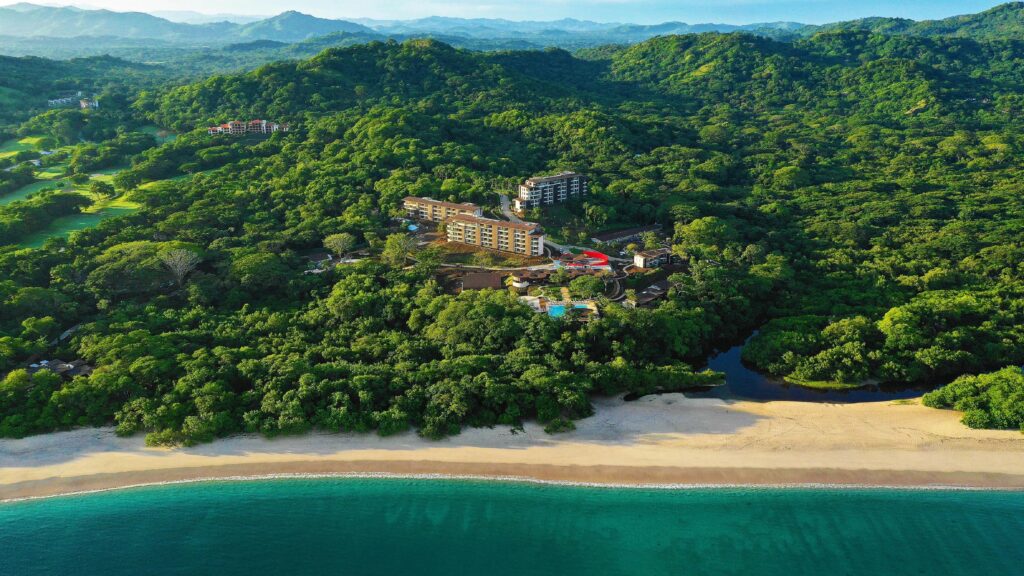W Costa Rica – Reserva Conchal: Luxurious, LGBTQ-friendly and Focused on Sustainabilty
Gay traveler Jon Bailey and his husband enjoy a relaxing trip to LGBTQ-friendly Costa Rica and check into the W Costa Rica, where Bailey explains there’s more than just luxury amenities, but opportunities for guests to give back to the local community.
Welcoming to all, Costa Rica has long been a popular destination for LGBTQ+ travelers looking for an adventurous tropical vacation. The Central American country is known for its rain and cloud forests, flora and fauna, surfing, warm climate, and more!
Queer travelers looking for an idyllic sustainable travel destination will quickly find that in Costa Rica, which has a reputation as a global leader in sustainable tourism. During a recent trip, my husband and I found out firsthand how the country has found the ideal balance between sustainability and style. This is abundantly apparent in the Guanacaste Region of the Nicoya Peninsula, where we visited recently to relax but also learn and participate while staying at the W Costa Rica, located in the Reserva Conchal.
Combining Ecotourism and Ecology
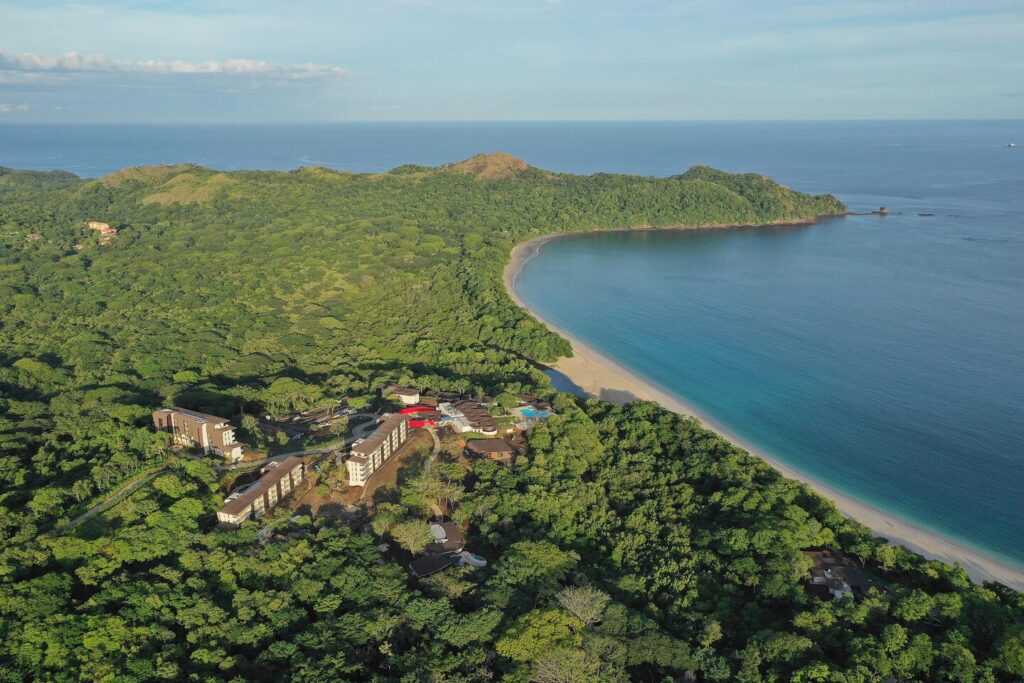
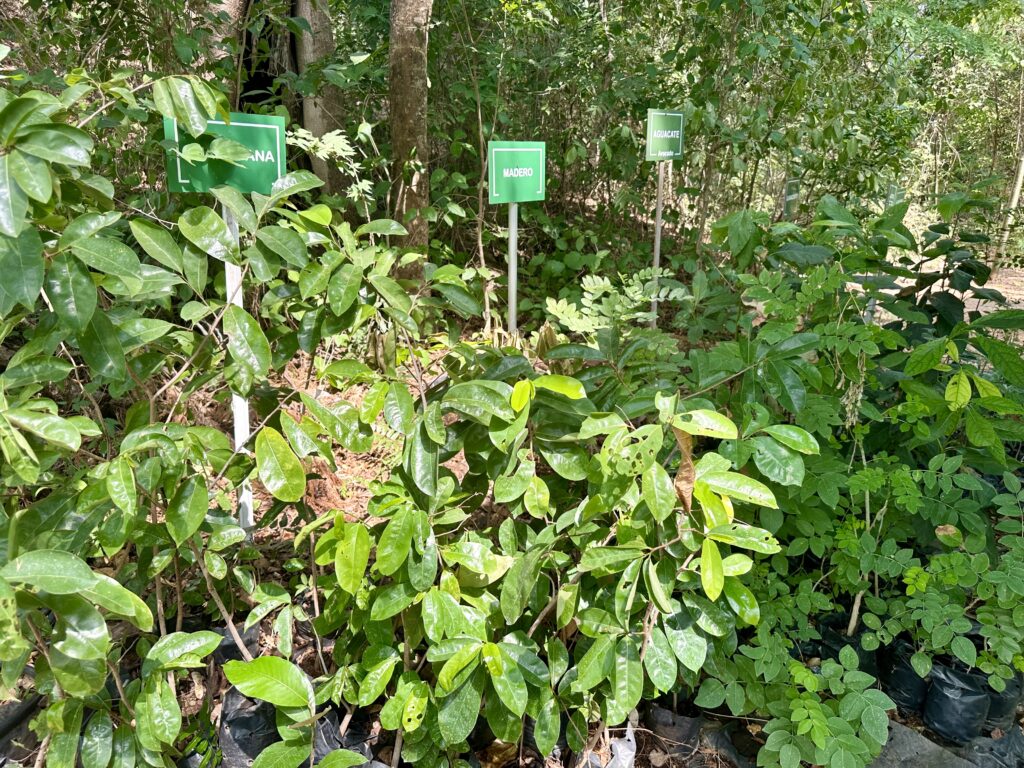
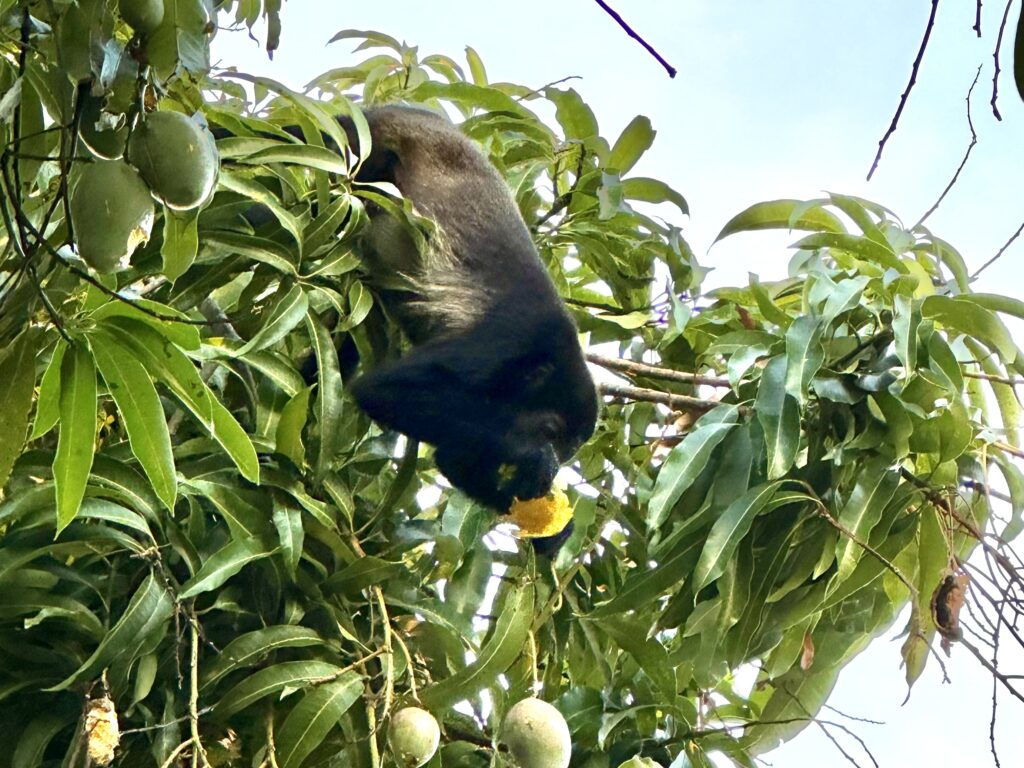
Woven seamlessly into the visitor experience, Costa Rican sustainability means much more than a recycling bin in your hotel room or reusable water bottles. The impact of every tourist or visitor has been considered as Costa Rica continues to focus on preserving its natural resources.
On a recent trip to the State of Guanacaste along Costa Rica’s northwest coast, my husband and I sat in the shade of a mango tree while howler monkeys played above us. We could hear quiet laughter by the pool and the tinkle of ice in cocktail glasses, while the nearby restaurant prepared spicy meats on an outdoor grill. We were here on vacation, but we were also interested in how the locals mitigated the impact of our visit on the environment.
We stayed at the W Hotel Costa Rica within Reserva Conchal, a 2300-acre natural preserve on the Nicoya Peninsula that provides a unique combination of protected lands and ‘conscious’ development. Two resort hotels, an 18-hole golf course, and luxury residences dot the landscape, primarily hidden by a lush forest and gently sloping hills and valleys. The area is located in one of the world’s five blue zones, a place where people live the longest and happiest. In this breathtaking environment, visitors can engage in programs that combine luxurious activities and or amenities with social responsibility.
Luxury Amongst a Diverse Ecosystem
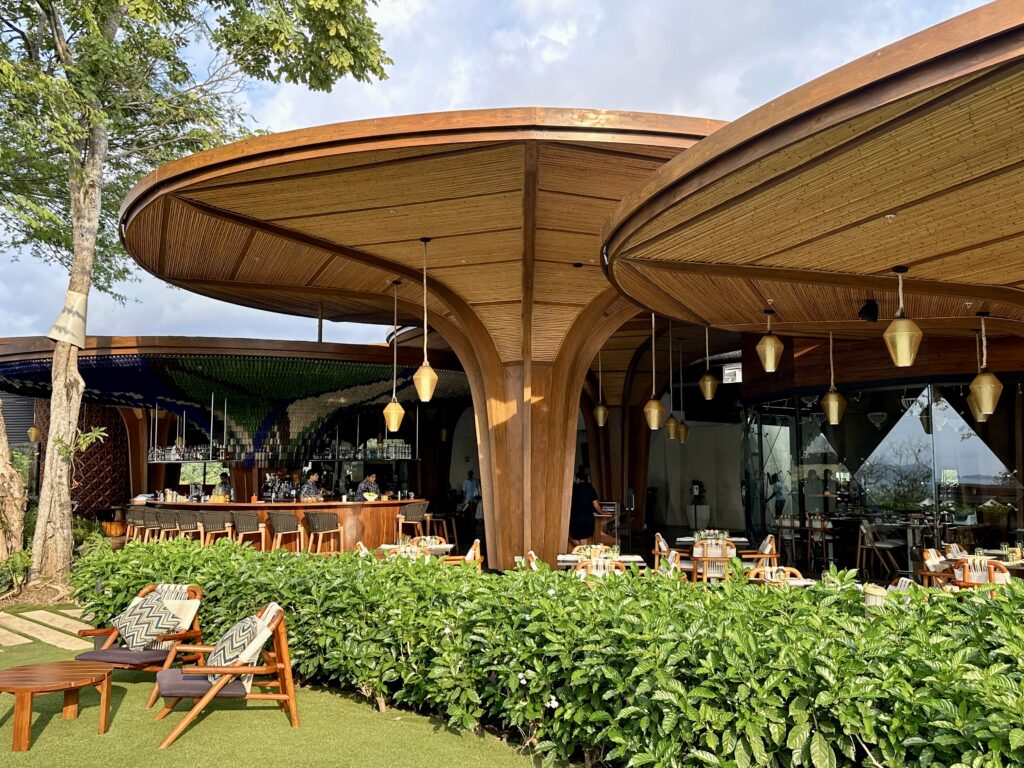
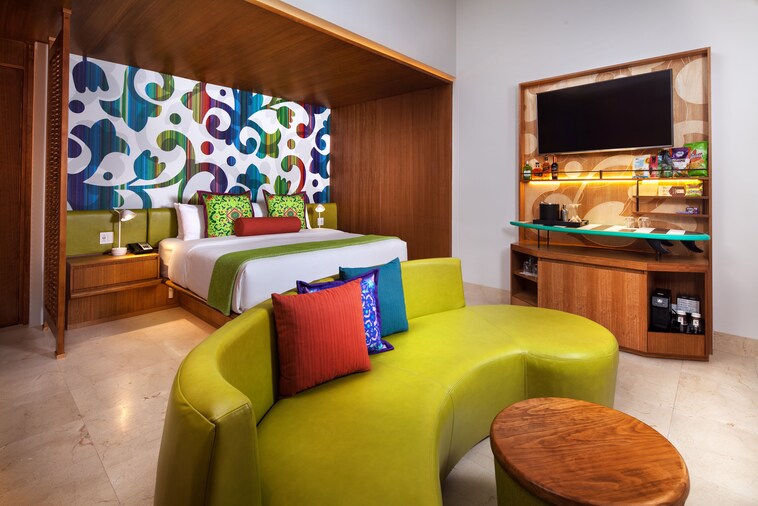
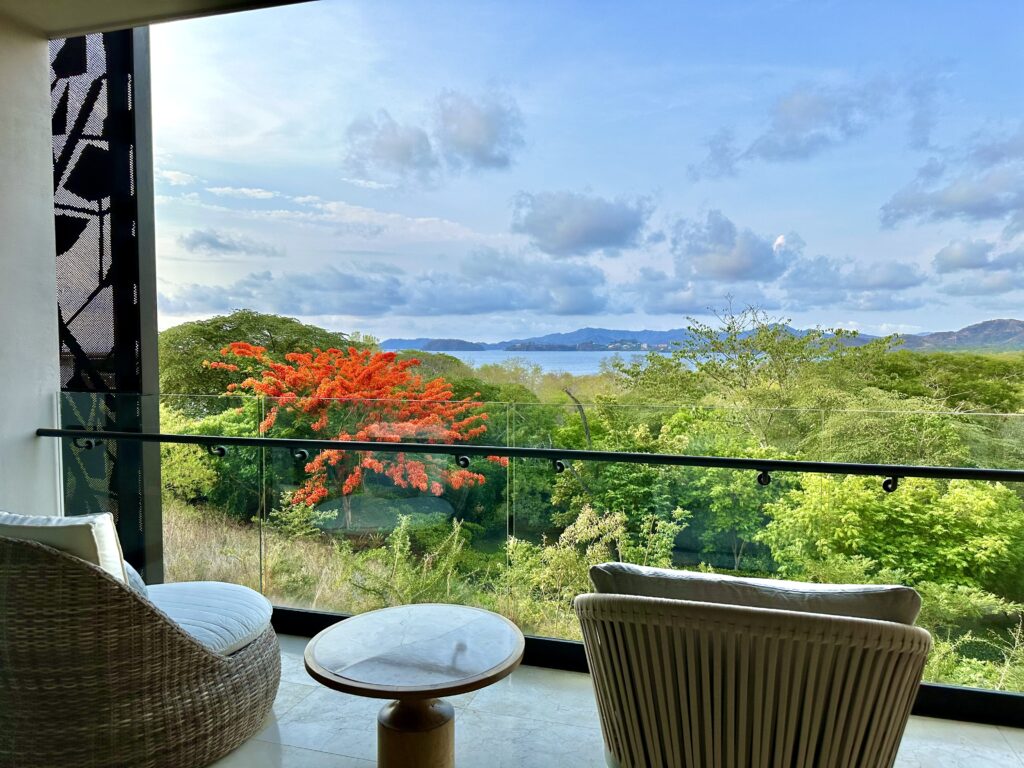
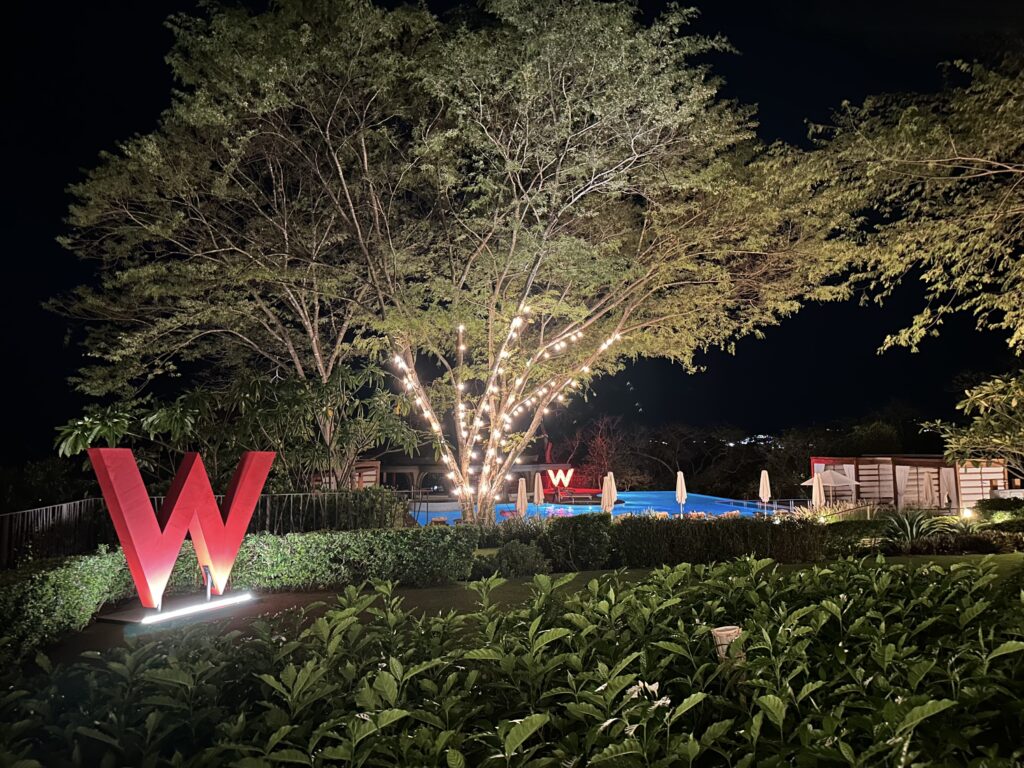
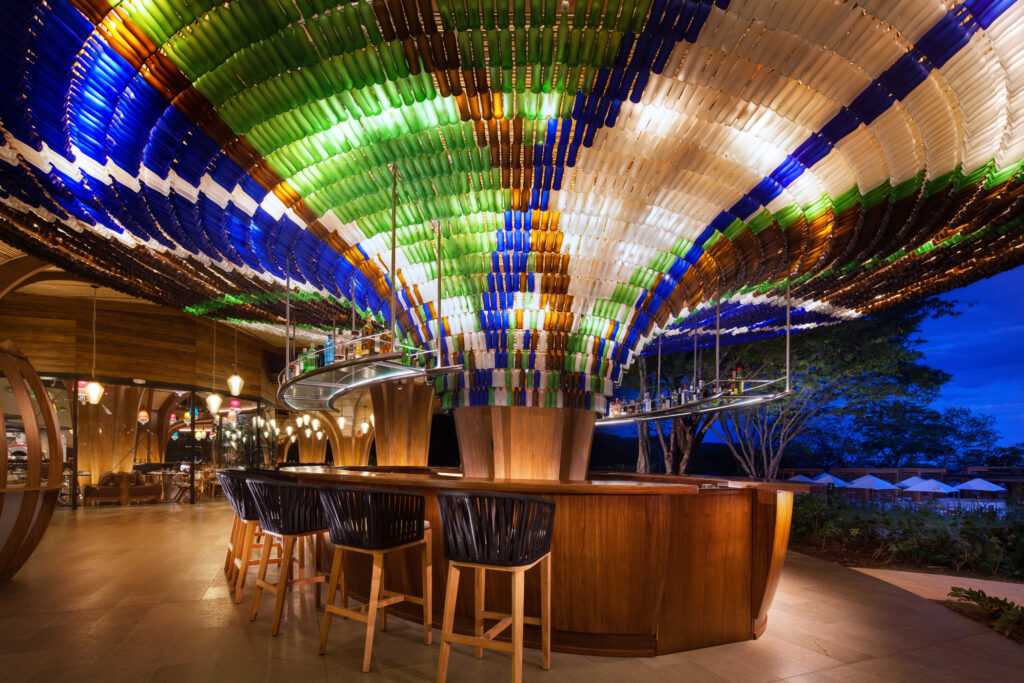
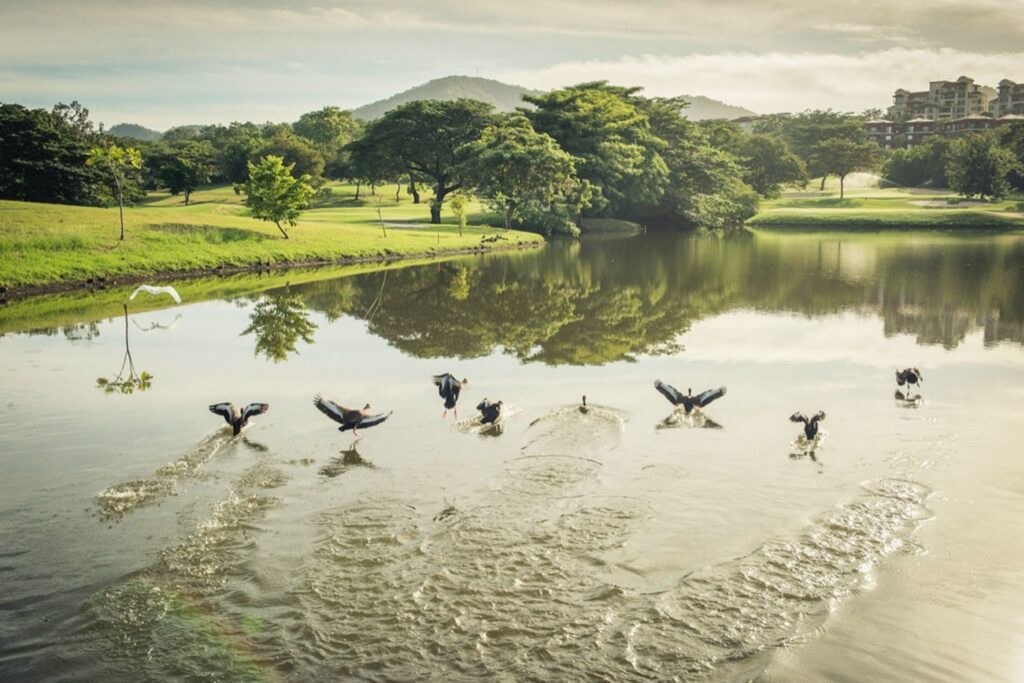
The first thing you’ll notice at the W Hotel in Reserva Conchal is its striking features, including natural wood décor, colored glass cocktail bar, and hot pink accents. But a deeper intention underscores the entire operation. Footpaths wind through buildings and down to the ocean where guests pass fern grottos and towering trees with playful monkeys hanging about. Spiny green iguanas the size of small dogs serve up a little side-eye as guests saunter past, and a rainbow of butterflies and hummingbirds float on air near the tropical flowers.
With its signature design and attention to detail, the W Costa Rica resort is pure luxury. The spacious guest rooms feature floor-to-ceiling glass doors providing a complete indoor-outdoor experience. The bathrooms have large walk-in showers that – just like the guest rooms – offer unobstructed views of the forest and mountains beyond.
The pool scene offers next-level relaxation keeping with the surroundings of peace, serenity, and connection with nature. We sat in comfy lounge chairs while sipping mango margaritas, looking out to the blue ocean beyond as tropical birds flew in for periodic visits.
Recycling Waste and Water
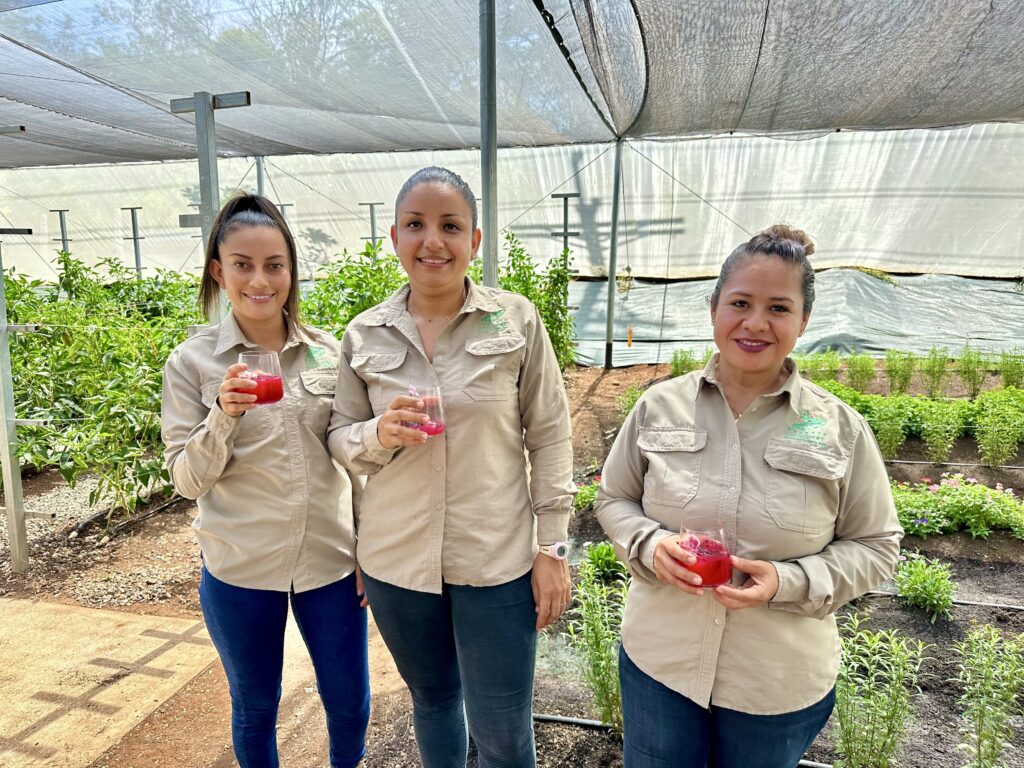

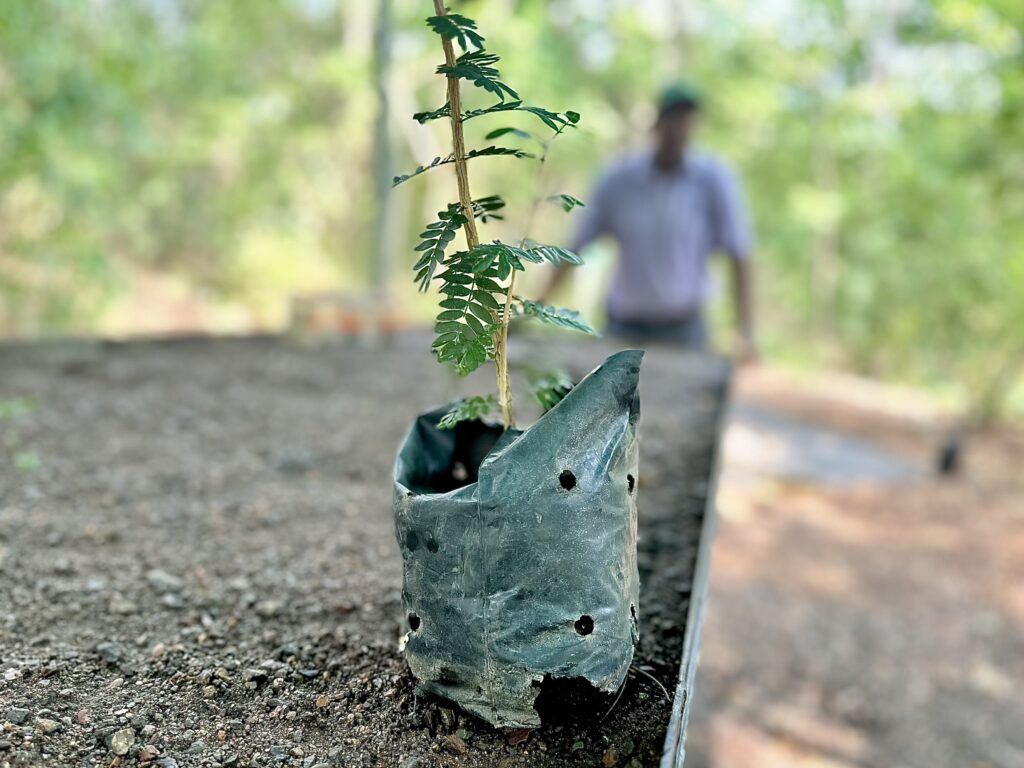
The resorts, including the W Costa Rica, that resided in the Reserva Conchal demonstrate their commitment to the environment through many initiatives meant to preserve and protect natural resources. We were invited behind the scenes to see how these programs work to benefit the community and country.
All the waste from guests, trash bins, organic materials, and food debris from restaurants is sorted and recycled at the Recyclable Waste Recovery Center. We watched as organic materials were composted for use in gardens, landscaping, and crops grown throughout the Reserve.
An onsite Wastewater Treatment Plant collects wastewater from the resort compounds, channeling it to a central location for treatment and reuse as landscaping irrigation. The program, which is especially important in the drier parts of the country, is coupled with Costa Rica’s first desalination program, where salt is removed from ocean water and channeled into the resort’s systems.
National Wildlife Refuge
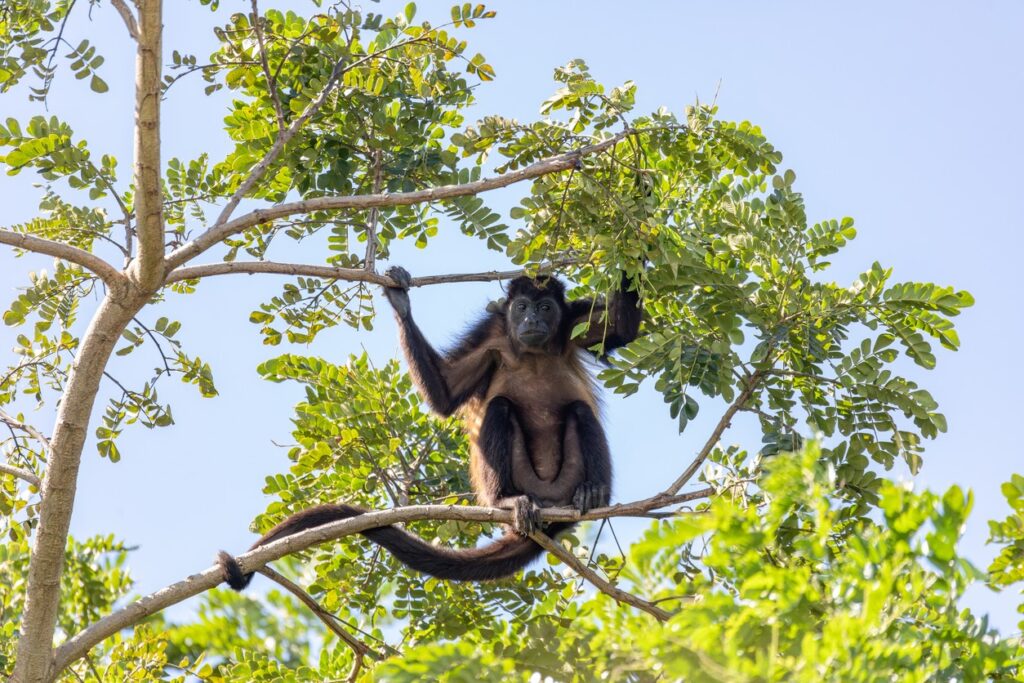
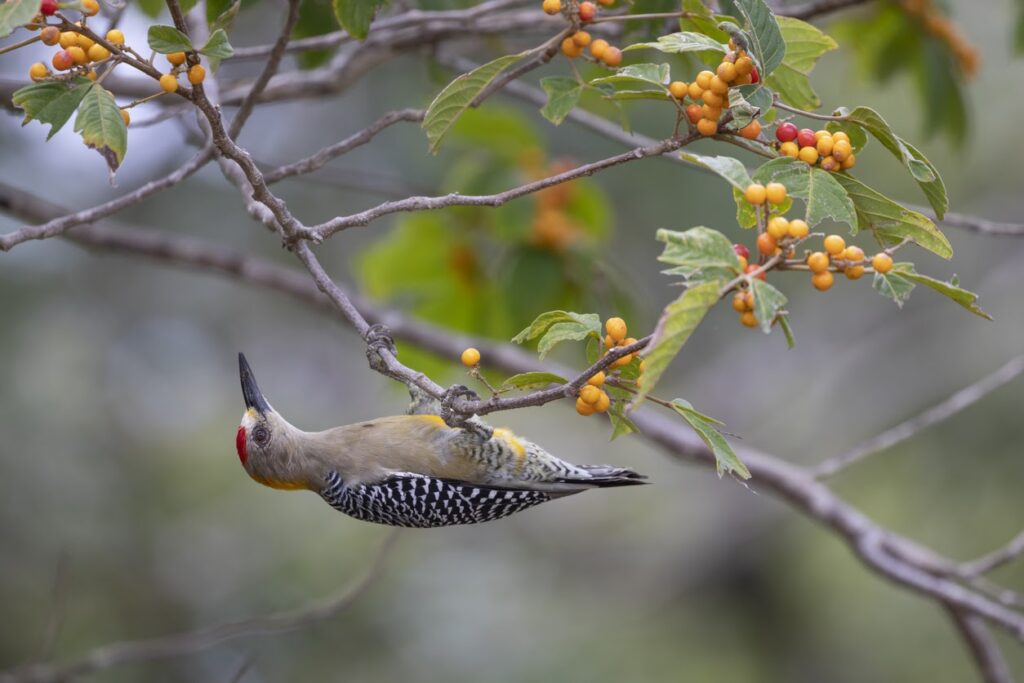
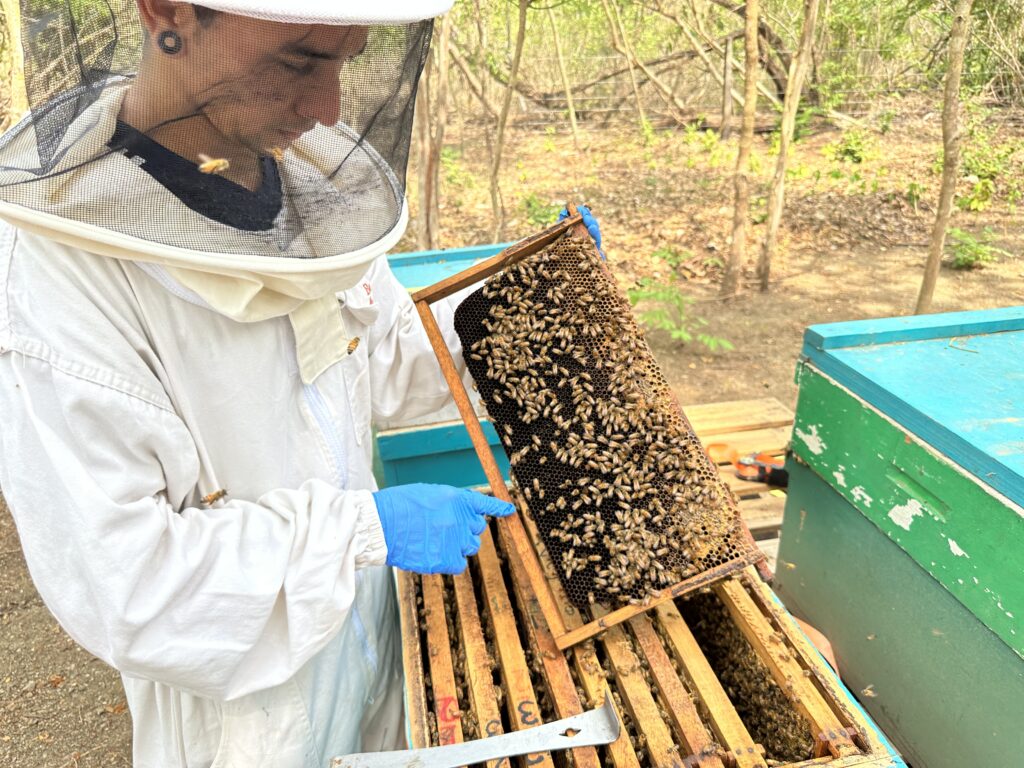
Reserva Conchal also includes a national wildlife refuge, created in 2009 to preserve nearly 100 acres of natural habitat in the Guanacaste Region. Animals and plants are protected from human encroachment, and as a result, creatures like jaguars, ocelots, coati, armadillos, crocodiles, iguanas, and a variety of monkey and bird species thrive here.
The Refuge is also protecting bees because of the critical role that pollination plays in keeping the environment healthy. My husband and I had a personal encounter with several hives at the Apiary within the Refuge, which houses more than five million bees across 60 hives scattered across the landscape.
Despite our protective beekeeper’s togs, we were a little unnerved to be so close to a very active hive. Of course, the bees really don’t care about people nearby as long as you don’t try to harm the hive or the queen. We studied their intricate honeycomb system as they produce some very delicious honey. Yes, we tasted it!
Social Initiatives and Volunteer Opportunities
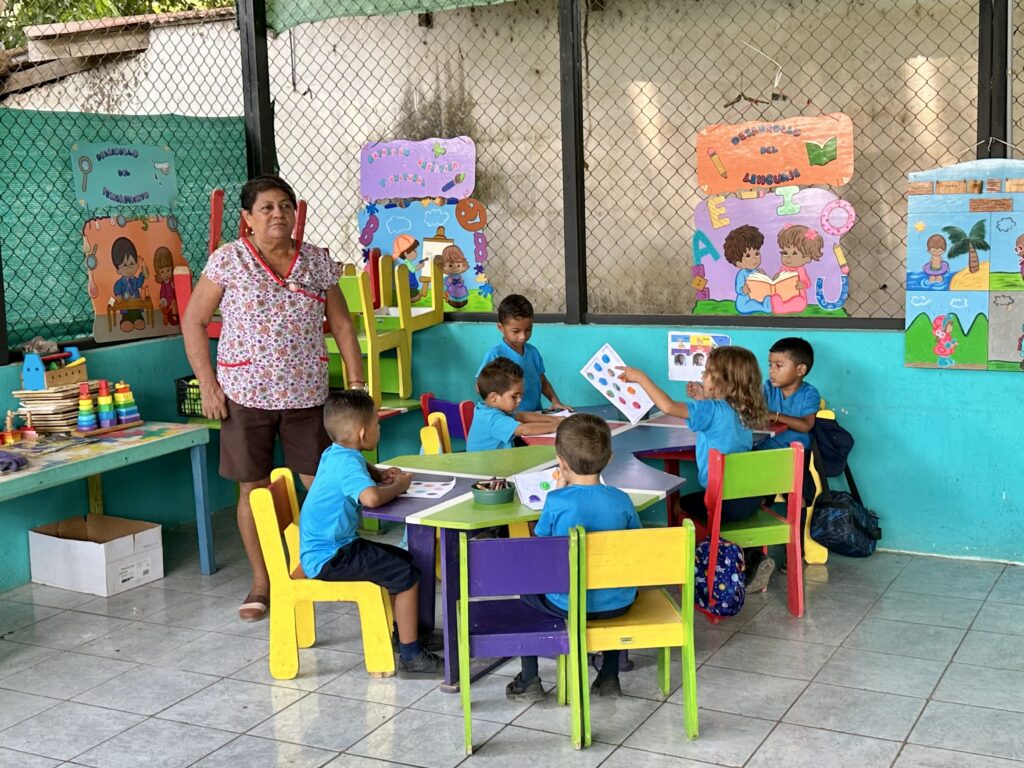
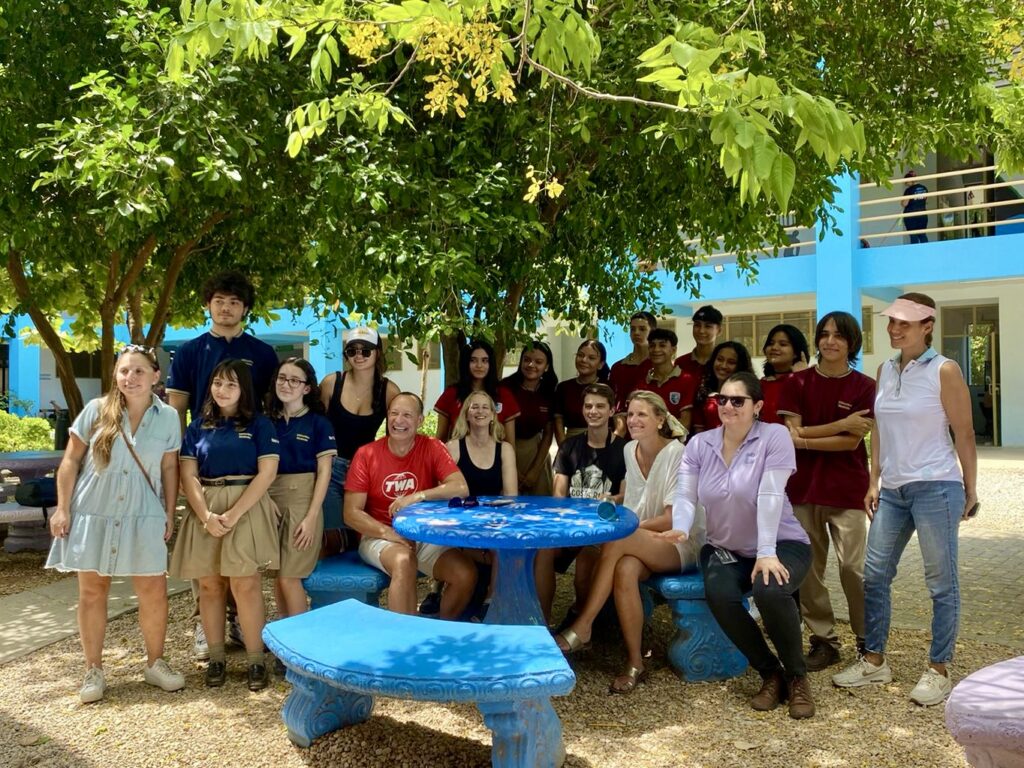
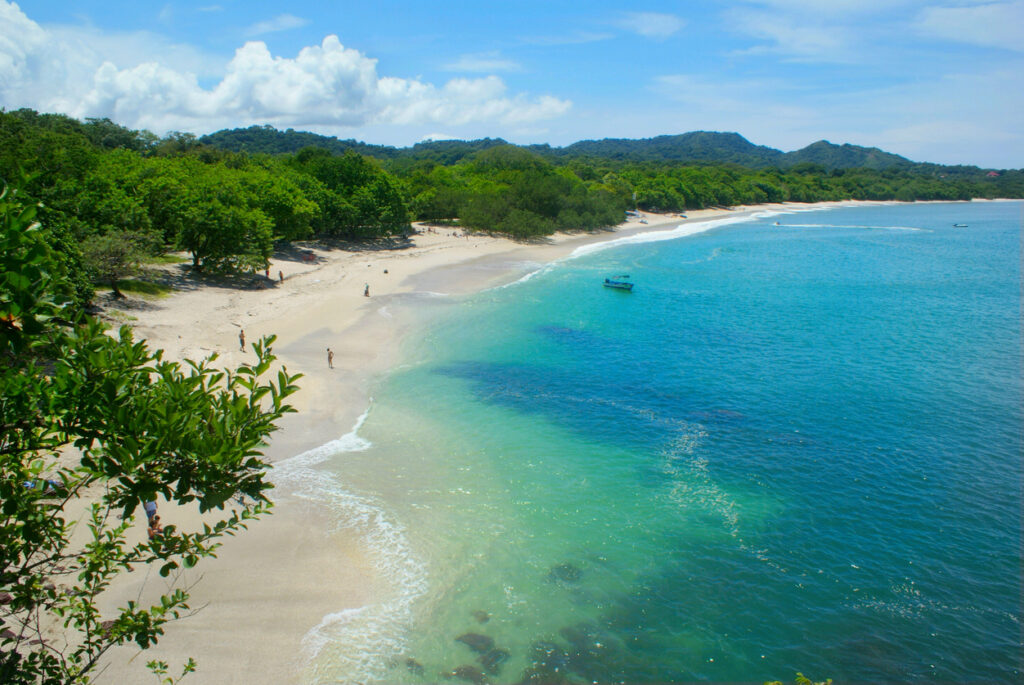
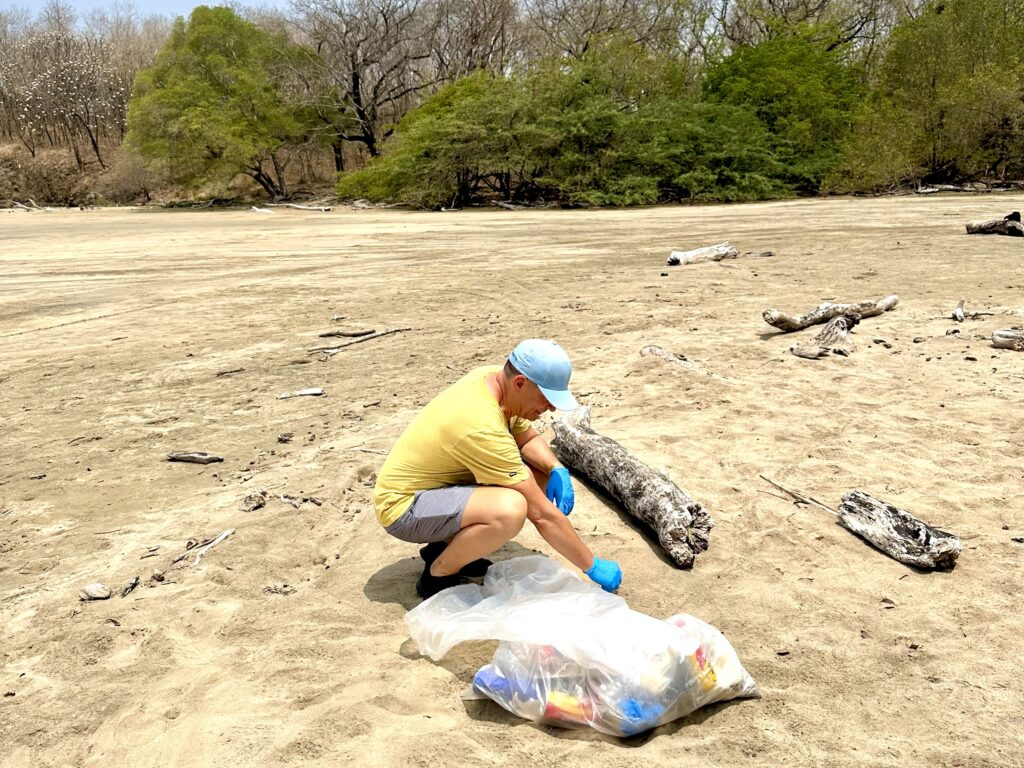
During our visit to Reserva Conchal, we witnessed several of the area’s social initiatives in action. As volunteers, we were asked to help paint a local public school in need of an overhaul. Despite limited funds and historically low attendance, locals are working to ensure kids are going to school and have the teachers and supplies they need to excel.
At a high school, we chatted with some engaging seniors with excellent English language skills and big plans ahead. Some were interested in studying engineering, law, and quite a few were planning on working in tourism – Costa Rica’s largest economic driver. At Reserva Conchal, we stepped into classrooms where local residents were engaged in intensive training programs to fine-tune their English, work on their hospitality skills and train for jobs at local resorts.
The next day, we continue exploring the vast ecosystems within Reserva Conchal. We woke up early and boarded a van to Playa Conchal, a local beach that stretches for approximately a mile along the gorgeous coastline (located between Play Brasilito and Playa Zapotillal).
While momentarily mesmerized by the bluest of ocean waves, we focused on our task as beach clean-up volunteers. Environmental experts told us about micro-plastics – tiny beads of plastic which have broken down from bigger plastic trash. Fish and other sea life can consume these beads which harms their health and the habitat. We stepped across the beach carefully to avoid the turtle nesting areas that also are harmed by irresponsible people and their trash.
In addition to the beach clean-up initiative, a particularly impressive program is the internal agricultural program onsite at Reserva Conchal which trains local women for their first employment opportunity. We heard directly from participants who learned the mechanics of employment, but more importantly, were connected positively to their own self-worth. In their greenhouse classroom, they tend the gardens, growing herbs, vegetables, and flowers that are used in the kitchens of the resorts nearby.
Our Full Circle Moment
Our story came full circle as we sat at the beautiful W Costa Rica bar that evening, sipping cocktails adorned with fresh herbs and flower petals we had seen growing that morning in the greenhouses. Not only did we marvel at the beauty of this fantastic country, but we felt good knowing that we had helped, in some small part, to preserve its natural resources for generations to come.
More Info About Costa Rica
For more information about the environmental sustainability programs in Costa Rica, visit the following sites: Instituto Costarricense de Turismo – Costa Rican Tourism Institute, Ministerio de Ambiente y Energía – Ministry of Environment and Energy, and Conservation Foundation specializing in Oceans.
Queer Vacationers can also plan their LGBTQ+-friendly trip to this Central American country with helpful trip-planning tips and travel inspiration found in Vacationer’s LGBTQ+ Travel Guide to Costa Rica.

